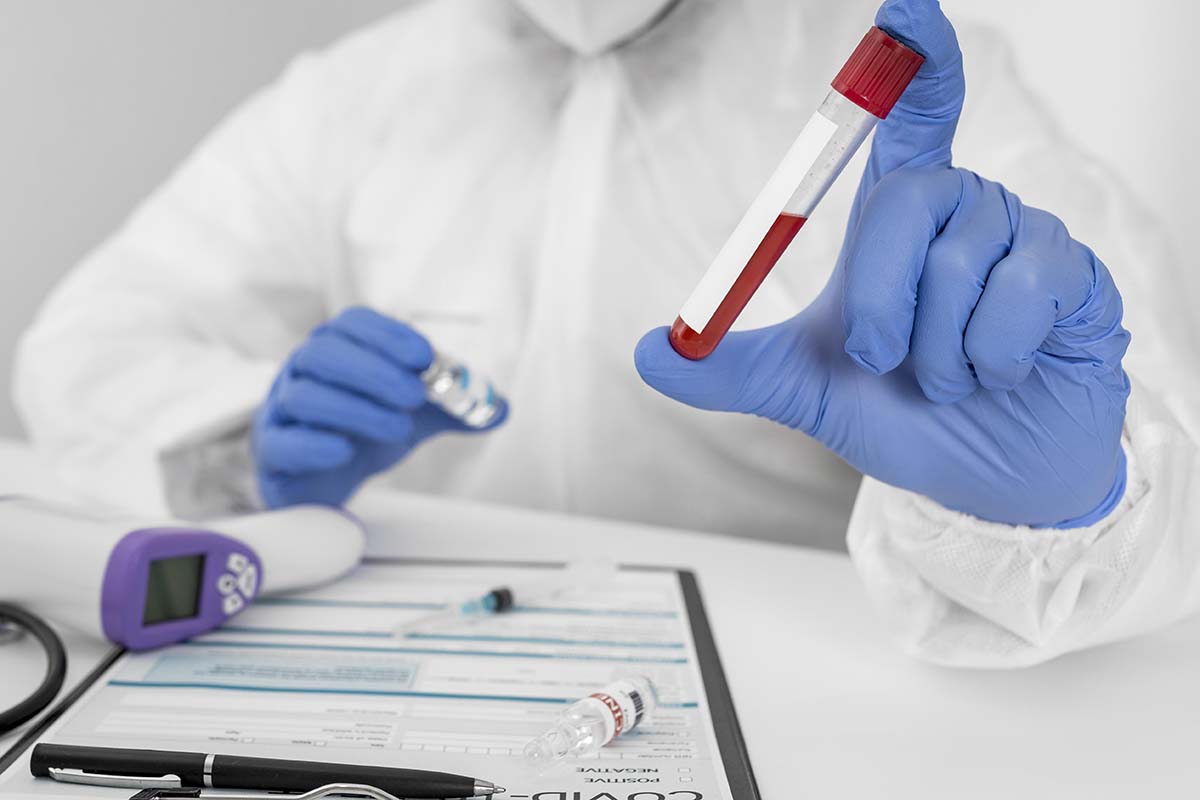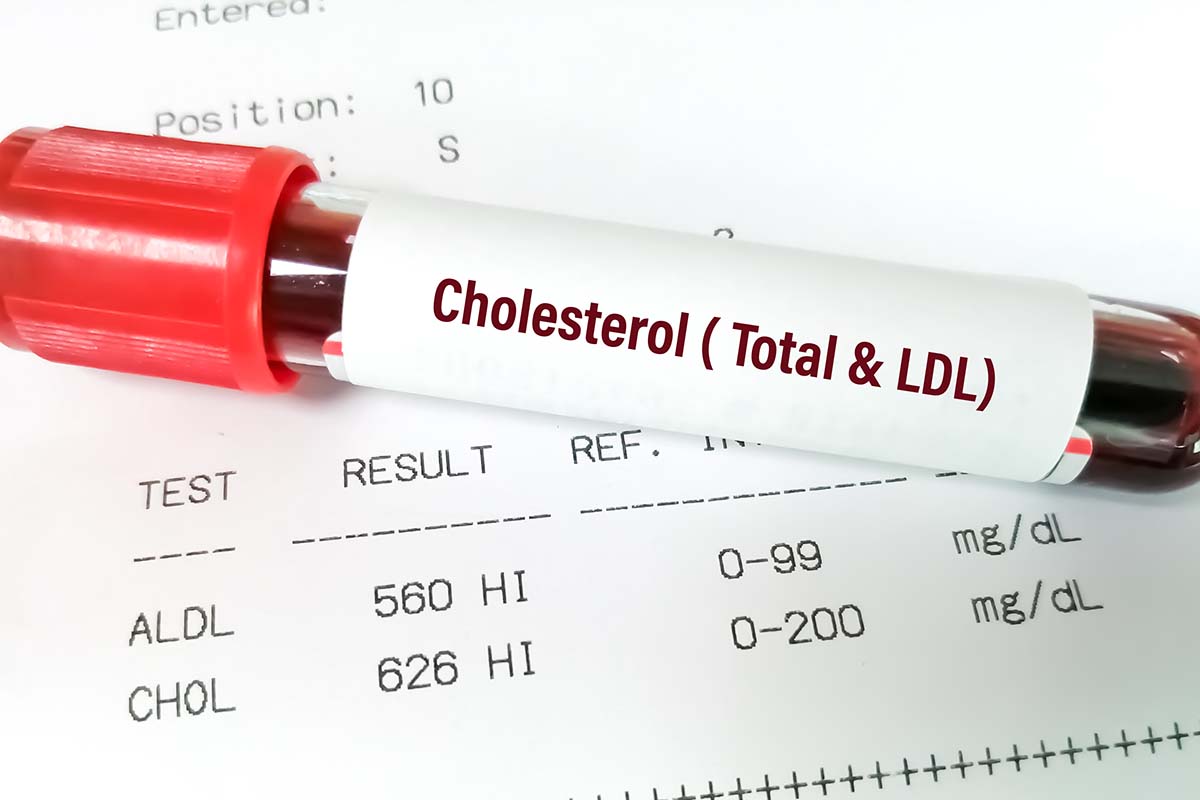The Importance of Cholesterol Tests
Maintaining good heart health is crucial for a long and healthy life. One essential aspect of heart health is monitoring your cholesterol levels. Cholesterol tests, often referred to as lipid panels, are a fundamental tool for assessing and managing heart health. In this article, we will delve into the importance of cholesterol tests, the cholesterol test procedure, and what cholesterol lab tests can reveal about your overall well-being.
Why Are Cholesterol Tests Important?
Cholesterol is a waxy, fat-like substance that is present in every cell of your body. It is essential for the formation of cell membranes, hormones, and vitamin D. However, when cholesterol levels become imbalanced, it can have detrimental effects on your heart health.
High levels of LDL (low-density lipoprotein) cholesterol, often referred to as “bad” cholesterol, can lead to the accumulation of fatty deposits in your blood vessels. These deposits can narrow and block blood flow, increasing the risk of heart disease and stroke. Conversely, high levels of HDL (high-density lipoprotein) cholesterol, often called “good” cholesterol, help remove LDL cholesterol from the bloodstream, reducing the risk of cardiovascular problems.
Why Regular Cholesterol Testing is Crucial
Regular cholesterol testing is essential for maintaining heart health because it allows for the early detection and management of any issues. Here’s why it’s crucial:
Risk Assessment
Cholesterol tests help assess your risk of heart disease and stroke. Early detection of high cholesterol levels allows for timely intervention, providing a window of opportunity to take preventive measures.
Preventive Measures
Your healthcare provider can recommend essential lifestyle changes if your cholesterol levels are not within the desirable range. These changes may include dietary modifications to reduce the intake of saturated and trans fats, increased physical activity, and weight management. These proactive steps can significantly improve your heart health and reduce your risk of heart disease and stroke.
Medication Management
In some cases, lifestyle changes alone may not be sufficient to manage cholesterol levels. Your healthcare provider may prescribe cholesterol-lowering medications, such as statins, to help reduce your risk of heart disease. These medications can be a vital part of your heart health management plan.
Monitoring Progress
Regular cholesterol tests enable you to track your progress in managing your cholesterol levels. This ongoing monitoring is particularly valuable if you’ve already been diagnosed with high cholesterol. It allows you and your healthcare provider to determine the effectiveness of your chosen interventions. By assessing the impact of dietary changes, exercise, and medication, you can make informed decisions about your heart health.
Overall Health Awareness
Cholesterol tests offer more than just insights into your heart health. They provide valuable information about your overall well-being. Understanding your cholesterol levels encourages you to adopt a heart-healthy lifestyle.
This awareness can have a positive ripple effect, leading to better choices in nutrition, exercise, and stress management, all of which contribute to improved health and well-being.
The Cholesterol Test Procedure
Cholesterol tests are simple, non-invasive, and can be performed in a clinical setting or even at home with a home cholesterol test kit. The standard cholesterol test procedure involves the following steps:
Consultation with a Healthcare Provider
Before getting a cholesterol test, it’s advisable to consult with your healthcare provider. They will assess your risk factors, medical history, and overall health to determine the necessity and frequency of cholesterol testing.
Fasting
Most cholesterol tests require fasting for at least 9-12 hours before the test. This ensures that the results are accurate and not influenced by recent food consumption.
Blood Sample Collection
A cholesterol test typically involves a blood sample. A healthcare professional will draw blood from a vein in your arm using a needle. Alternatively, a fingerstick or home test kit may be used for a quick assessment.
Laboratory Analysis
The collected blood sample is sent to a laboratory for analysis. The lab will measure the levels of LDL cholesterol, HDL cholesterol, total cholesterol, and triglycerides in your blood.
Results and Interpretation
Once the analysis is complete, your healthcare provider will interpret the results. They will discuss the significance of your cholesterol levels and whether any action or treatment is needed.
What Cholesterol Lab Tests Reveal
Cholesterol tests provide crucial information about your heart health. Here is what cholesterol lab tests reveal:
- Total Cholesterol: This number reflects the total amount of cholesterol in your blood. It includes both LDL and HDL cholesterol. Elevated total cholesterol levels can indicate an increased risk of heart disease.
- LDL Cholesterol: LDL cholesterol is often considered “bad” cholesterol because it can contribute to plaque buildup in your arteries. High levels of LDL cholesterol are associated with an increased risk of atherosclerosis and heart disease.
- HDL Cholesterol: HDL cholesterol is considered “good” cholesterol because it helps remove LDL cholesterol from your blood vessels. Higher levels of HDL cholesterol are associated with a lower risk of heart disease.
- Triglycerides: Triglycerides are another type of fat found in your blood. High triglyceride levels are associated with an increased risk of heart disease, especially when combined with high LDL cholesterol and low HDL cholesterol.
Interpreting Your Cholesterol Test Results
Understanding your cholesterol test results is essential for assessing your heart health. Here’s how to interpret the numbers:
- Desirable Total Cholesterol: Less than 200 mg/dL
- Desirable LDL Cholesterol: Less than 100 mg/dL
- Desirable HDL Cholesterol: Above 60 mg/dL
- Desirable Triglycerides: Less than 150 mg/dL
It’s important to note that the interpretation of your cholesterol test results can vary based on your age, gender, and individual risk factors. Your healthcare provider will consider these factors when assessing your heart health and developing a personalized plan for maintaining or improving your cholesterol levels.
Importance of Cholesterol Tests: Summing Up
Cholesterol tests are a fundamental aspect of maintaining good heart health. Regular testing, combined with appropriate lifestyle changes and medical intervention when necessary, can help you lower your risk of heart disease and stroke. Understanding your cholesterol levels and their significance is a critical step in taking charge of your heart health and overall well-being. Consult with your healthcare provider to schedule a cholesterol test and discuss your heart health today. Your heart will thank you for it.




















